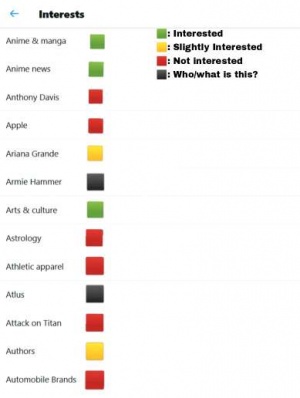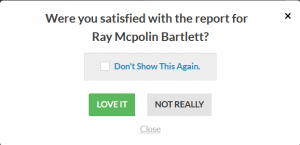Ray Bartlett
Contents
Introduction
The extent to which my data is collected is usually in the back of my mind when I engage in any digital activity. However, like most people, it doesn’t necessarily inform my actions to a great extent. As much as I might tell myself that I avoid using Facebook due to their notoriously questionable handling of their users’ information, I’ve continued to use Instagram intermittently since 2012. I have less of an online presence than most people I know, but if this class has taught us anything, it’s that data collectors can gain a lot from very little. I was fully expecting to be shocked at the amount and depth of information I came across, but was not anticipating a particularly exhaustive illustration of who I am as a person.
Surface Level Searching: Google
Using Google, the most basic and common method of searching for people (and just about everything), doesn’t yield much information about me. Unsurprisingly, “Ray Bartlett” is not a specific enough search query, but adding my hometown to the end easily makes every result about me. And just about every result is related to a high school cross country race. The only exceptions on the first page are a Linkedin and Facebook account, the former of which was made very recently (and is far from complete) and the latter of which was made solely to find a freshman year roommate and hasn’t been touched since. Needless to say, neither is a great or complete portrayal of me.
As for the rest of the page, it would be a stretch to call this an “inaccurate” portrayal of myself; cross country certainly represents a major component of my time in high school, and the team has won multiple state titles, making it unsurprising that there are newspaper articles driving these results to the top of Google. But while nothing about this representation is outright false, it’s surely incomplete.
This isn’t too surprising to me, and I can hardly blame Google. If I were active on Linkedin and/or Facebook, these results would probably be a better representation of me. The first thing people see when searching for me would be two accounts that I directly control, giving me a relatively fair amount of influence over how I am portrayed to others online. The only downside is that Linkedin is focused entirely on an individual’s career and Facebook accounts are only viewable by friends. So as far as Google offering an accurate portrayal of my identity, it’s more or less dependent on me. If I used Facebook or LinkedIn, then Google would do a satisfactory job of presenting my identity to those seeking information about me.
Deeper Level Searching: Social Media
As I mentioned, I would not consider myself to be very active on social media. I’m much more of an onlooker than a contributor, spending the vast majority of my time on digital platforms keeping up with music releases or browsing funny content like The Onion. I have four posts on Instagram, and the only information they convey is that I have graduated high school, been to Chicago, and like to wear hoodies.
Still, even though a person viewing my Instagram or Twitter accounts might not discover much, Instagram and Twitter themselves could surely gather a lot of data about me based on the type of content I interact with. Although they’re uninterested in crafting a highly detailed profile of who I am, personal interests are a significant part of any individual’s identity.
The most striking difference between Instagram and Twitter’s compiled ad interests is the level of detail. Based on this admittedly very small sample size, Instagram prioritizes quantity and Twitter favors quality. Twitter’s compiled list of my ad interest list has, although it is very long, a finite amount of very specific topics consisting mainly of my favorite entertainment properties and artists. Instagram’s Account Data menu has an ostensibly infinite list of ad interests with an always-present “View More” button that fluctuates wildly in accuracy. It’s also much less current, still containing interests from my middle school years like skateboarding and Xbox 360.
If I were to cherry-pick the topics from Twitter and Instagram that I found to be the most representative of my interests, they would form a relatively accurate yet very shallow portrait of me. I’m passionate about music, and a few of my top artists are present on both lists, along with some of my favorite video games and anime. But even with these hyper-specific examples, only a very hollow identity emerges. They don’t convey the nuances of why I’m interested in these things or even any of my hobbies; just a flat list of my favorite media. On top of this, seemingly less than half of the subjects listed are actually accurate. Twitter seems to think I’m a fan of the NFL and NBA, which isn’t even remotely true, and Instagram has hair products and shopping malls at the top of the list, neither of which I’m at all interested in. This is likely the result of filling in the gaps with general topics that people in my demographic care about.
WIthout me curating them in any way, these sprawling lists of ad interests are rife with inconsistencies and far from an accurate representation of my identity.
Deepest Level Searching: Data Brokers
Google and social media platforms present opposite problems when it comes to conveying my digital identity. A basic Google searched uncovered a single aspect of who I am, whereas social media data gave a broader overview that included an abundance of inaccuracies. A data broker should, in theory, mitigate both shortcomings by filtering information specific to the subject and foraging through a myriad of sources to uncover as much information as possible. Apart from scholars and those given access directly from Big Data companies themselves, these services are the most thorough way for most people to uncover information online. But interestingly, they didn’t have much to show about me.
I tried two services: Instant Checkmate and Been Verified. Been Verified had no information at all about me, though it found a very detailed profile of my dad, even though his social media presence is minimal. I would’ve expected my mom’s to be more extensive, since her profession is intrinsically linked to working and networking online (whereas it took me 20 minutes to teach my dad how to use venmo). As for Instant Checkmate, it did make a profile about me, but it left a lot to be desired. Nowhere does it include my full legal name, nor does it even present the correct capitalization of my middle name. Literally the only things it reveals are an email address and the address of a home that I haven’t lived in since 2006. For a paid service that touts itself as “the leading background search and people search tool on the internet,” there was shockingly little information. It was hardly enough to convince a searcher that I even exist, let alone provide them with a cohesive identity of me.
Conclusion
After looking through my Instant Checkmate profile, the website asks if I’m “satisfied” with it. My initial response is no, of course I’m not. It doesn’t provide anything that contributes in any capacity to discerning who I am or even where I live. But then I thought about it for a moment. This data, as well as everything from Google and social media, was not a satisfactory portrayal of my identity, and at times was completely inaccurate. But is this really a bad thing? Do I really want my identity to be online for anyone to access?
Though I was initially surprised and even a little disheartened at seeing the lackluster state of my digital identity, I can’t help but wonder if it beats the alternative. I personally don’t like sharing much about my life online, and I think it’s for the better that my digital identity stays as nebulous as possible. But it’s hard to know whether this is actually to my benefit. Should a potential employer in the future run some sort of background check on me, I’m not sure what such minimal information will tell them. It’s possible that another candidate could be more compelling simply because they had more interesting results on a service like Instant Checkmate.
Still, hypotheticals aside, I would prefer for as little information about me as possible to be floating around online, and searching for my digital identity has reassured me that maybe we haven’t had our privacy completely eroded by technology. Not yet, anyway, and I for one hope it stays that way.


